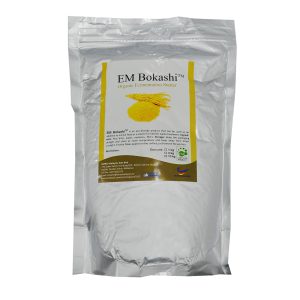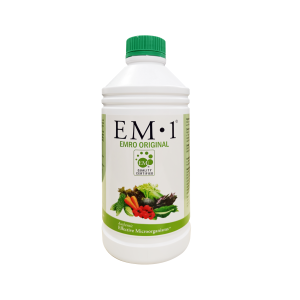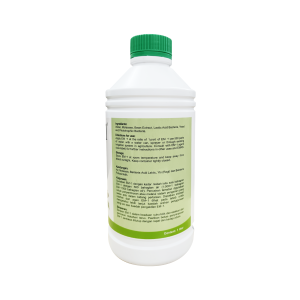Buy Food Waste Composting Supplies in Singapore
The trend of waste composting is catching up in Singapore and worldwide as one of the most cost-effective and environmentally friendly ways of creating organic compost. Waste composting is one of the best ways to recycle household food and organic waste into nutrient-rich compost for your garden. Worm compost or a composting powder with fermented organic material is added to kitchen waste to break it down. The resulting product is a high-quality, organic fertiliser ideal for most potted plants, gardens and even large gardens. The composting accelerator agent is combined with food waste in large, closed composting bins to speed up composting.
What Happens During Composting?
During composting, microorganisms and worms added to the pile consume the organic waste, breaking it down into its simplest components. The process produces humus, a dark brown, soil-like substance enriched with nutrients like nitrogen, potassium, and phosphorus that serves as a natural fertiliser.
The composting organisms such as earthworms and land isopods carry out this breakdown through aerobic respiration, which requires oxygen. This is where you come in. When you turn the compost, you introduce air and provide oxygen. Adequate water is also necessary, which makes wetting the compost pile before composting essential. This aerobic respiration generates heat and carbon dioxide, raising the compost pile’s temperature, effectively eliminating pathogens and diseases. With regular turning and watering, you can achieve a finished, nutrient-rich compost within a few weeks.
With the plethora of composting products available on Greenspade, you can start composting at home. Worm composting, or vermicomposting, takes a bit of learning to get it done perfectly. But once you get it right, you can have an unlimited supply of organic vermicast compost for your indoor and outdoor garden plants. This end product will fertilise your plants and keep them green and healthy – and the best part is that it’s free!
Besides vermicomposting, other composting methods in Singapore include using Bokashi composting powder. This organic powder is made from materials such as EM, molasses, sawdust, and rice bran. It is useful in the conditioning of chemical-contaminated soil and can also be used to treat kitchen waste. To get started on your waste composting journey, you just have to invest in the right products, such as a composting bin, composting liquid bacteria accelerator, and Bokashi composting power.
How to Compost – Steps to Start a Compost Bin
When you have your composting tools, the next step is to prepare your compost bin, and here’s how to set it up:
- Location: Choose a sheltered and well-ventilated spot in Singapore with some sunlight but not fully exposed to heavy rain and ensure that your bin has ventilation holes.
- Compost: Cut “browns” (carbon-rich materials) and “greens” (nitrogen-rich materials) into smaller pieces. Layer them in the bin with healthy soil or old compost between the layers and avoid adding disease or weed-infested materials.
- Moisture: Keep the compost moist like a wrung-out sponge but avoid overwatering.
- Decompose: Mix the materials weekly to introduce air and speed up decomposition.
- Adjust: Maintain a 2:1 ratio of browns to greens and adjust the moisture and browns if needed.
- Harvest: After two to four months, the compost should be dark brown or black with an earthy smell, indicating it’s ready.
What Can I Compost?
To ensure successful composting, knowing what you can and cannot compost is essential, and here are some items in Singapore you can compost:
Browns:
- Gardening Waste: Twigs, dried leaves, branches, and other garden debris that are cut into smaller pieces for faster decomposition.
- Cardboard: This includes items like toilet roll tubes and egg cartons made of cardboard.
- Selected Paper Products: Shredded newspapers, waste paper, and unbleached napkins. However, avoid glossy or heavily printed paper.
- Others: Crushed eggshells, hair, and fur.
Greens:
- Gardening Waste: Grass clippings, leaves, and weeds can be used for composting.
- Vegetable and Fruit Peels: Most vegetable peels can be used, including potato peels and carrot tops.
- Loose Leaf Tea, Tea Bags, and Coffee Grounds: Used tea leaves, non-plastic tea bags with staples removed, and coffee grounds are great additions.
What Cannot Be Composted?
If you live in an apartment in Singapore, composting the following items is not advised to avoid creating odours or attracting pests and upsetting your neighbours:
- Cooked food: The salt or preservatives present can harm the worms.
- Oily waste: Oil can disrupt the moisture balance of your compost pile and attract pests.
- Citrus: Acidic citrus peels decompose slowly and can disrupt the pH balance, hindering the overall decomposition process. It is also harmful to the worms used in composting.
- Garlic and Onion: Like citrus, including garlic and onion in compost can be detrimental to worms and other composting organisms.
- Animal-Based Food Scraps: These include meat, fish and bones.
- Non-biodegradable items: These include styrofoam and paper-plastic mixes.
- Chemically-treated items: The chemicals may be toxic or can increase the material’s resistance to moisture and slow down decomposition.
- Disease or Insect-Infested Plant Clippings: Plants that have perished due to disease, fungal infection, or insect infestation may spread diseases.
- Animal or human waste: Human and animal excrement might carry diseases and parasites and emit an odour. The only acceptable animal waste would be properly processed chicken manure.
The Benefits of Food Waste Composting
Eliminate Household Organic Waste: All the waste we produce daily takes a toll on the environment in and beyond Singapore because as it decomposes, it produces harmful methane gas. Composting is an efficient way to eliminate household organic waste. Done correctly, composting will produce nutrient-rich, odourless fertiliser for all your plants.
Get Happier, Healthier Plants: A compost full of organic nutrients accelerates plant growth and boosts health. It also helps to aerate the soil and aids with water retention in the soil. Plants are happy with organic and natural fertilisers, and with high-quality homemade organic compost, you have a never-ending supply of rich nutrition for all your plants.
FREE High–Quality Compost: The investment into composting products like composting bins and composting powders or composting kits is cost-efficient, considering the amount of compost you can produce regularly.
Click here to explore more of our featured gardening tools and other supplies.
Frequently Asked Questions
Does composting affect the environment?
Composting is a highly beneficial practice for the environment, even at a domestic level. When you compost your kitchen and yard waste, you not only create a rich, fertile supplement for your garden soil, but you are also reducing the volume of waste sent to landfills. At our current rate of waste generation, Semakau Landfill in Singapore is expected to be fully filled by 2035.
In addition, composting reduces your reliance on chemical fertilisers, keeping your garden natural and reducing runoff pollution. Furthermore, composting improves soil structure, enhancing its ability to retain water and support plant growth, leading to a more vibrant and productive home garden. Plus, it assists in soil remediation by improving the conditions of compacted or undernourished garden soil. So, not only does composting benefit your home garden, but it contributes to broader environmental well-being too.
What happens if you overfeed compost worms?
Overfeeding compost worms is particularly problematic in a tropical climate like Singapore’s. The heat and humidity can accelerate the decomposition of food waste, which exacerbates the issues associated with overfeeding. Too much food waste can decompose faster than the worms can consume, leading to a build-up of rotting material. This creates an imbalance in the bin’s environment, leading to unpleasant odours and potentially attracting pests.
Furthermore, an overabundance of decomposing food can increase the acidity levels in the bin and generate heat, both of which are harmful to worms. In the tropical heat of Singapore, this situation can escalate quickly, making the bin’s environment hostile and potentially lethal for the worms.
Therefore, in Singapore’s tropical climate, it’s even more important to feed compost worms gradually, carefully observing their consumption rate. If uneaten food starts to pile up, it’s a clear sign to reduce the amount of food being added, allowing the worms to catch up.
READ MORE




